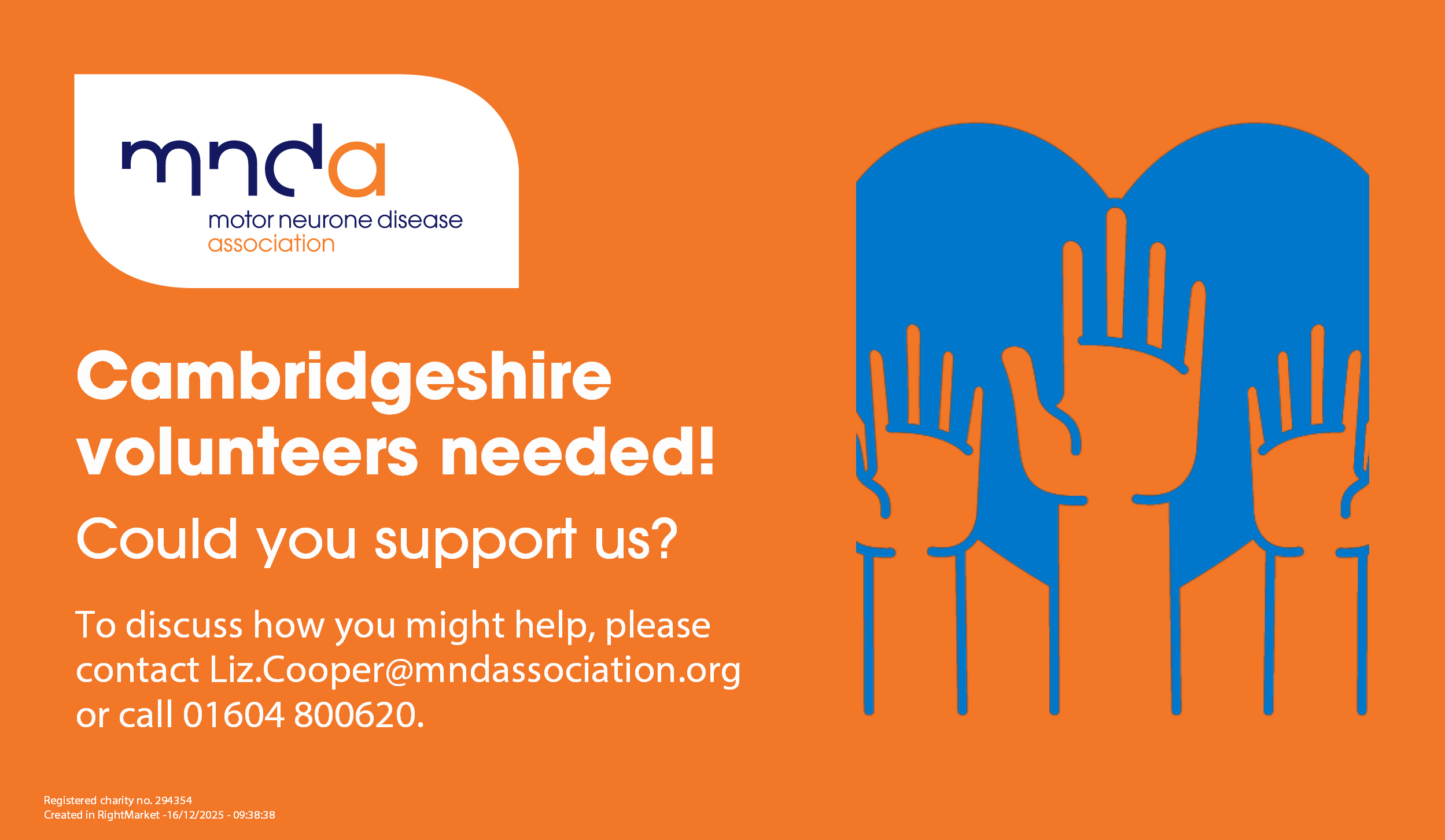-
-
LocationCambridgeshire
-
ContactCynthia George
-
Phone
-
Email
-
Welcome to the Cambridgeshire Branch
The branch is run entirely by volunteers and aims to provide the best possible support to local people with MND, their families, and carers.
The Cambridgeshire Branch of the MND Association offers support to all those in the county and surrounding areas who are affected by Motor Neurone Disease. This includes their partners, carers, relatives and friends.
Find out more about the branch

Latest News
Donload the questionnaire Here
Read our latest newsletter
MND Research
£4.25m investment into MND research announced A new £4.25 million partnership which aims to discover meaningful treatments for MND in ‘years not decades’ was announced to coincide with Global MND Awareness Day on 21 June.
Researchers from six universities across the UK have been awarded the funding to kick start collaborative efforts to end MND. Generous donations from supporters to Kevin Sinfield’s Extra Mile Challenge has meant the MND Association has been able to contribute £1 million to the MND Collaborative Partnership. Other funders to the partnership are charities LifeArc, MND Scotland and My Name’5 Doddie Foundation and government bodies Medical Research Council (MRC) and National Institute for Health and Care Research (NIHR).
Nicola Waters, who is living with MND, said:
"Donations and the work of charities like the MND Association have brought us to the brink of a cure for this terrible disease.’ It is hoped the Partnership will provide a launchpad for further collaborative investments into MND research, including the £50 million committed by the Government in November 2021 as a result of the United to End MND campaign."
Dr Brian Dickie, Director of Research and Development at the MND Association, said:’Collaboration is crucial to success.
We are delighted that leading scientific minds across the UK have the opportunity to combine their expertise, supported by the joined-up funding from multiple organisations, in the common aim of understanding, treating and ultimately defeating MND.
Prof. Ammar Al-Chalabi, Co-Director of the research programme and Professor of Neurology and Complex Disease Genetics at King’s College London, said:
’Our goal is to discover meaningful treatments for MND within years, not decades. This landmark funding will bring the UK’s major MND research centres together for the first time in a co-ordinated national effort to find a cure. We now have a much better understanding of MND, so we must take this opportunity to accelerate development of new treatments and work together to move this knowledge into the clinic and help people affected by this devastating disease.’



